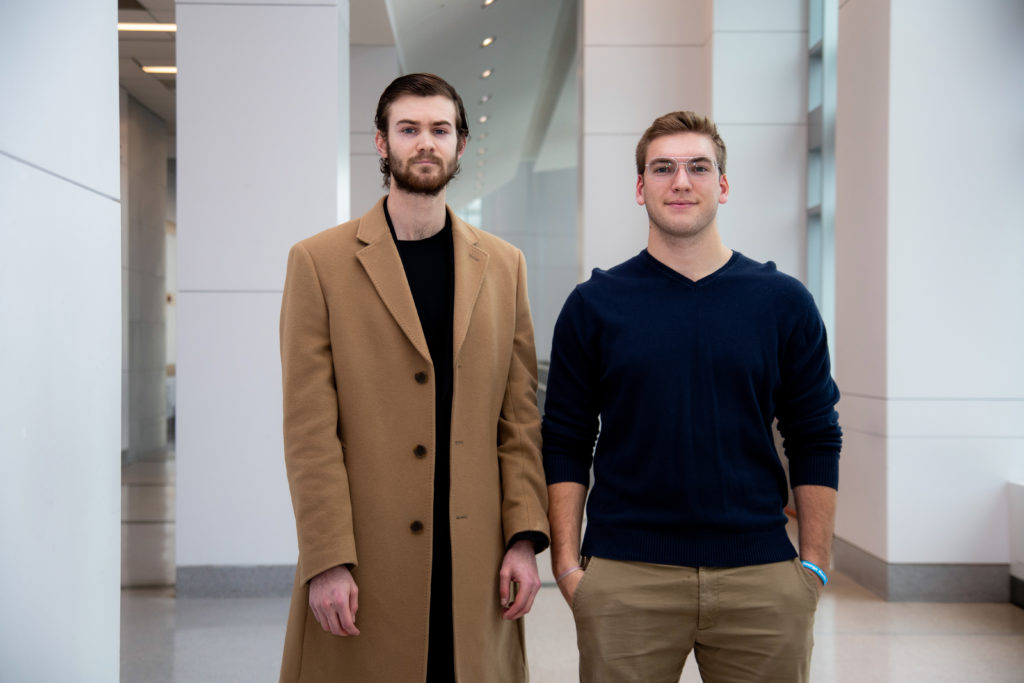A group is trying to educate students about relations between the U.S. and China through a new organization.
Group leaders said the organization, which the Center for Student Engagement approved Thursday, will host debates and discussions about the two countries’ political and economic policies. Junior and philosophy major Matthew Luch said he and senior Will Desautels co-founded the U.S.-China Strategic Studies Organization to create a space for students to engage in discussion and debate about trade and diplomacy between the two countries.
“I have been studying this topic very deeply for the past year, and so I believe the next step is to get a feel for what other students think about on the issue,” Luch said. “One person’s thoughts and perspectives on an issue are nothing, so I think we need to study the topic from a more collective approach.”
He said student groups like the Alexander Hamilton Society – an organization that educates students about contemporary international political and economic issues – occasionally touch on U.S.-China relations. Luch said the group will discuss issues like the ramifications of the “Made in China 2025” plan, a policy designed to bolster Chinese technology manufacturing worldwide, and the Belt and Road initiative, a global infrastructure project.
He added that the group will partner with student organizations like the China Development Student Think Tank, which conducts research on Chinese political and economic policy, to broaden members’ education about U.S.-China issues.
“Now, obviously any student organization focused on foreign affairs, or U.S.-China Relations, will touch on them,” Luch said in an email. “But in my opinion these strategic issues are so critical to the future of the world that they need to be looked at and discussed in great depth by passionate student thinkers.”
Will Desautels, the group’s co-founder, said members hope to eventually provide students with networking opportunities to connect with professors and outside experts who study relations between the two countries.
“For professors, if they want to be resources that we all draw on, it’ll be good to have a network for us and students,” he said.
Desautels said he and other group leaders hope to bring international students into the organization to share their perspectives on U.S.-China issues and garner more underclassmen members.
“One thing that’s been really important to us has been to draw on not just U.S.-based students but also international students and to students who are partial to the Chinese perspective,” he said. “Also, to build a legacy, and so we’ve already established a freshman representative, so for us, it’s really important to build that legacy up.”
Zach Rosenfeld, a freshman studying international affairs and the group’s freshman representative, said organization members are attempting to ensure all sides of the conversation are prominent on campus through the new group’s activities.
“This is a genuine hope for analyzing the strategic issues that go into this,” Rosenfeld said. “I think in general, on campus, there is a lack of conversation around this topic.”
The members will meet about every two weeks to discuss the current state of affairs between the U.S. and China, Rosenfeld said. He said the group’s leaders reached out to David Shambaugh, a US.-China relations expert on campus when brainstorming the best way to launch the organization.
Rosenfeld said the group is currently focusing on planning and hosting events that do not require much funding, like student debates and discussion series with professors who study the two countries’ relations. He said the group will revisit how to fund bringing in outside speakers once the organization gains traction and a strong base of members.
“There are not any financial concerns we have talked about at the moment,” he said. “Basically, what it is right now, is people coming today to talk and debate particular issues.”
“We welcome everyone taking their own different angles,” he said.




